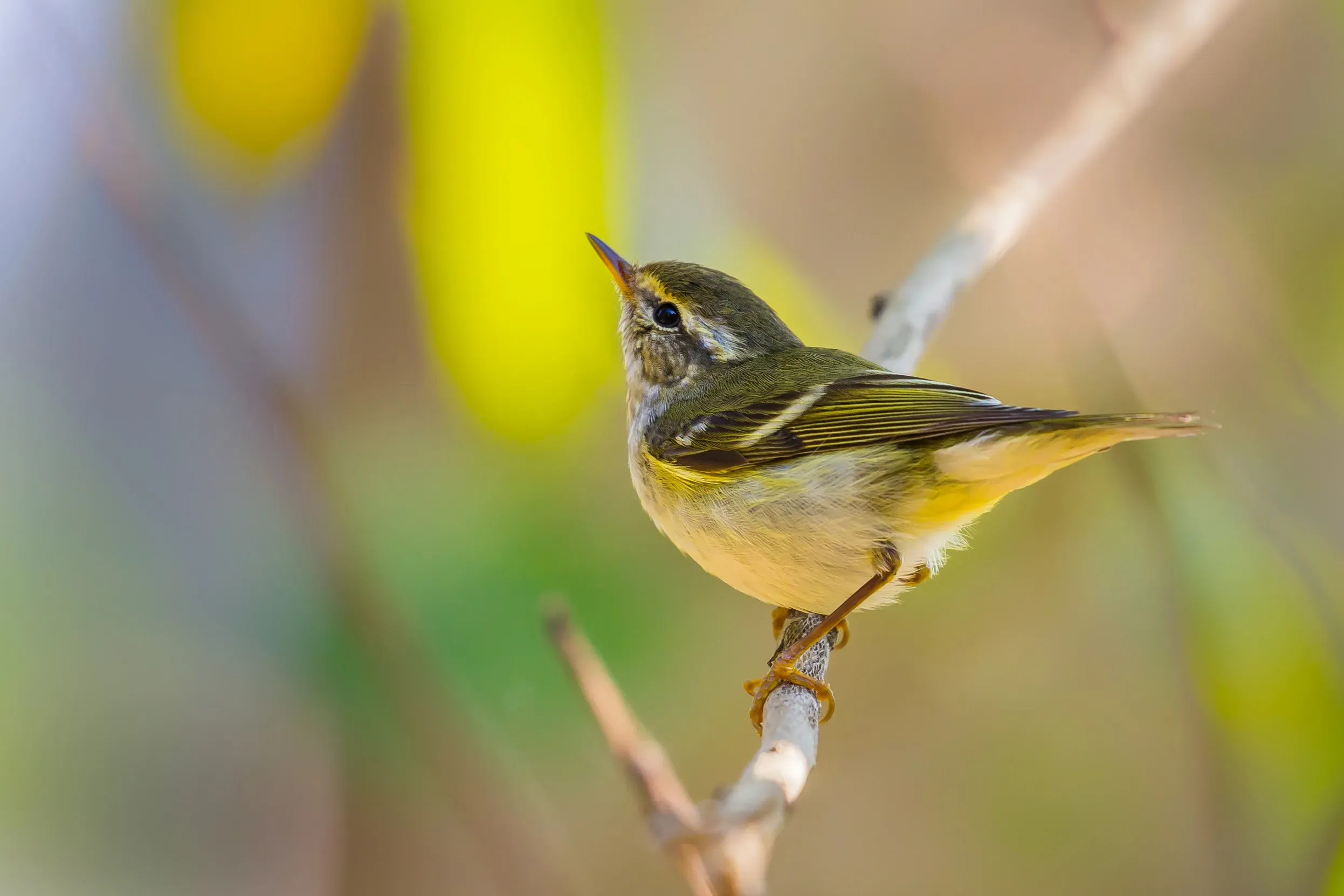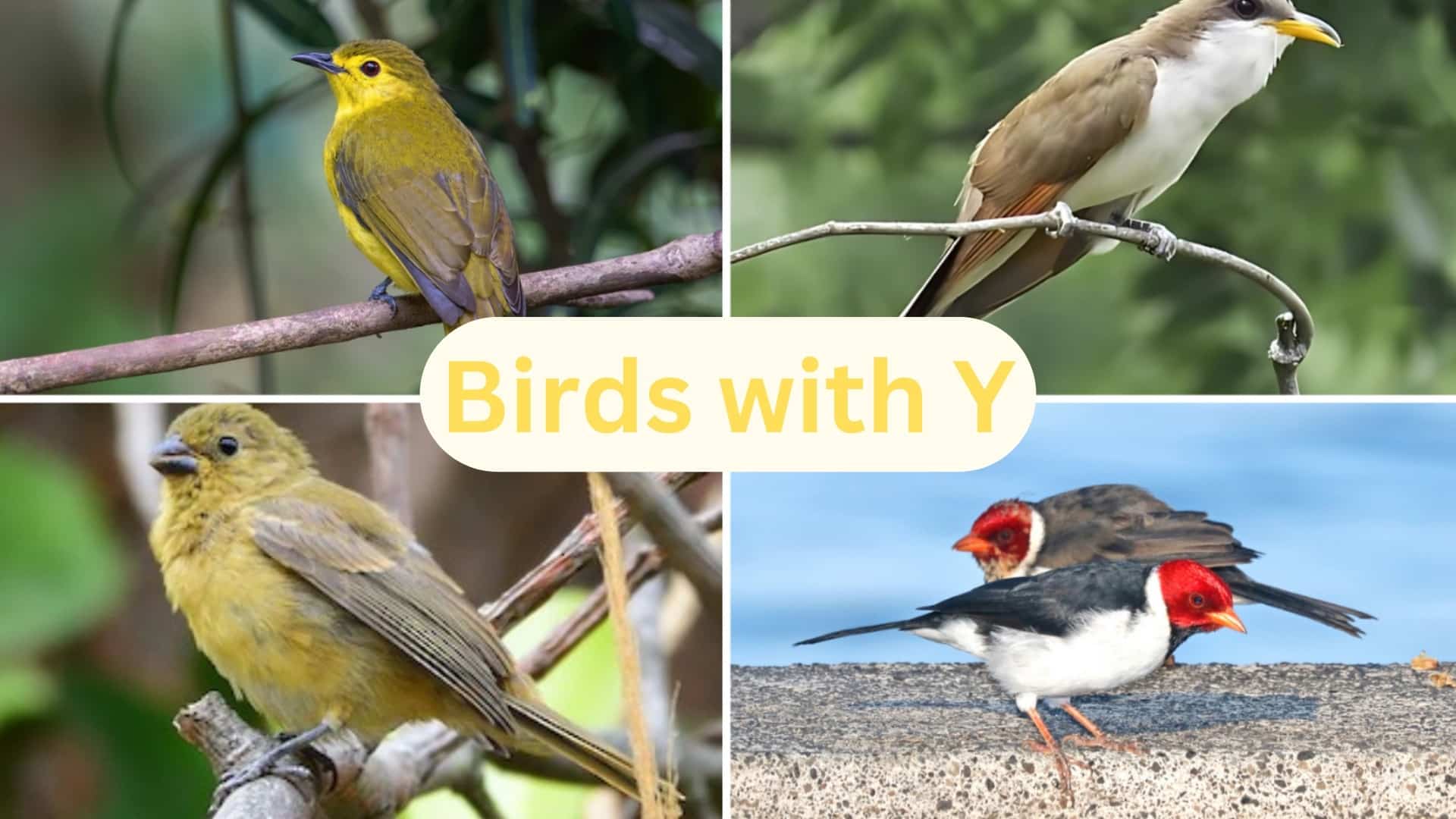
Ever wondered which feathered friends have the letter “Y” in their name? You’re in for a learning treat!
Birds are amazing creatures that are different from mammals in several key ways. While mammals have fur or hair, birds have feathers.
Mammals feed their babies milk, but birds feed their young with food they find. Most mammals walk on four legs, but birds have two legs and two wings that help them fly through the sky.
From the bright yellow warbler to the yellow bishop, there are some truly unique birds with “Y” in their names. Each has its own special features and habits that make bird watching so exciting.
Keep reading to learn more about these unique “Y” birds and learn what makes each one special in the wonderful world of feathered creatures!
Commonly Spotted Birds With The Letter “Y”
1. Yellow Warbler
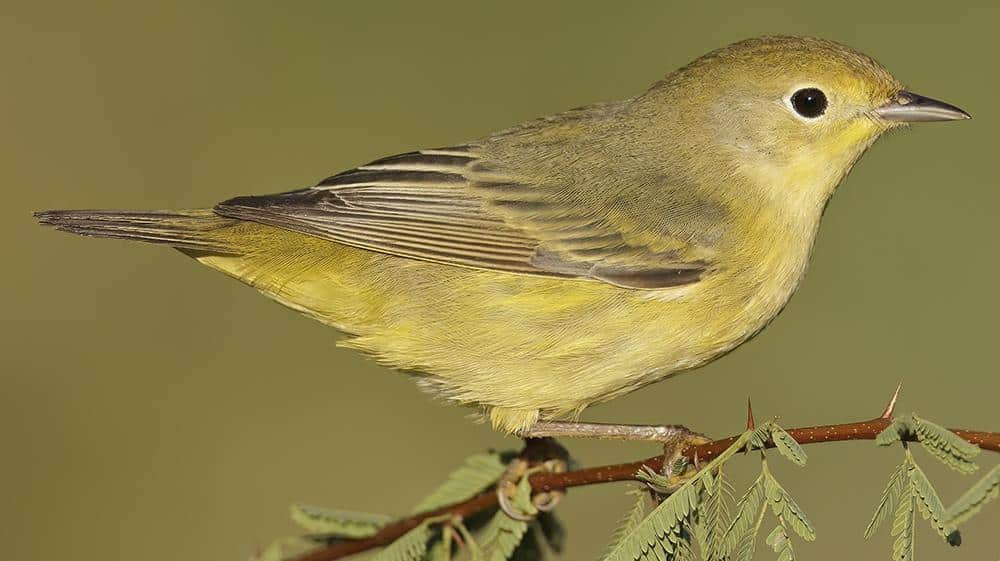
The Yellow Warbler is a small, bright yellow songbird easily recognized by its sweet, whistling tune. It is commonly seen across the Americas, especially during migration.
-
Region of Habitat: North, Central, and South America
-
Scientific Name:Setophaga petechia
-
Feeding Habits: Insects, spiders, and small berries
-
What Sound They Make: A high-pitched “sweet-sweet-sweet, I’m so sweet” song
Fun Facts
Yellow Warblers build their nests in dense shrubs to protect from predators. They are known to add more layers to their nest if a cowbird lays eggs in it.
2. Yellow-bellied Flycatcher
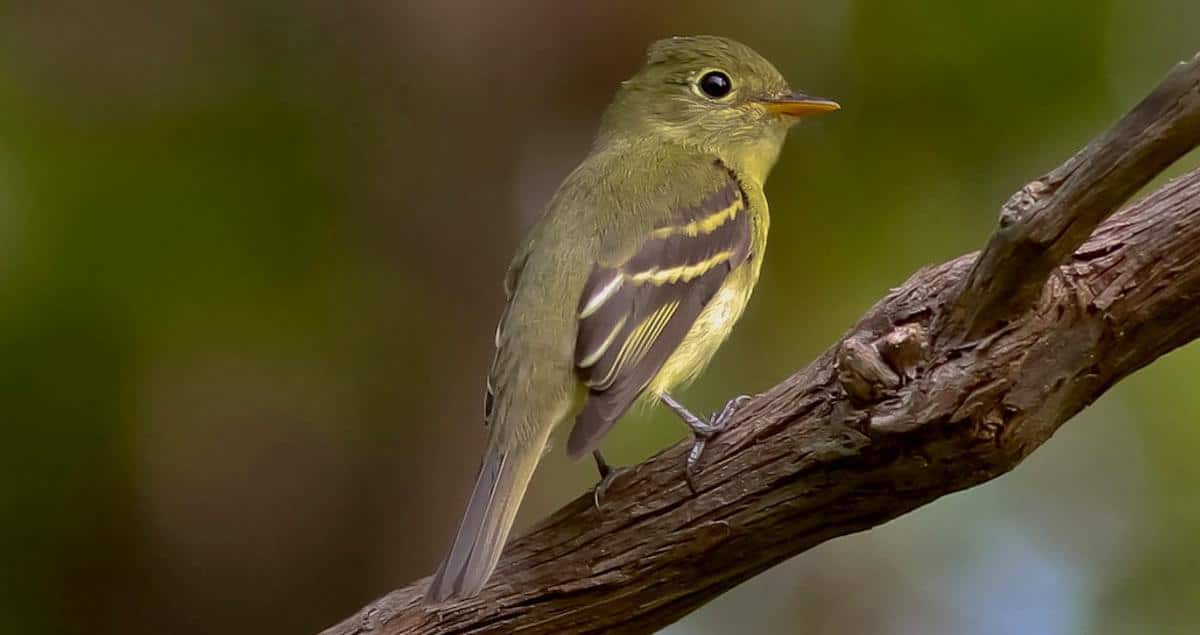
This small, olive-green bird is often seen darting through wooded areas in search of flying insects. It’s shy but active, making it a fun challenge for birdwatchers.
-
Region of Habitat: North and Central America
-
Scientific Name:Empidonax flaviventris
-
Feeding Habits: Flying insects and small arthropods
-
What Sound They Make: A soft “che-LEK” or “tse-berk” call
Fun Facts
The Yellow-bellied Flycatcher often nests on the ground among moss. It travels long distances between Canada and Central America each year.
3. Yellow-billed Duck
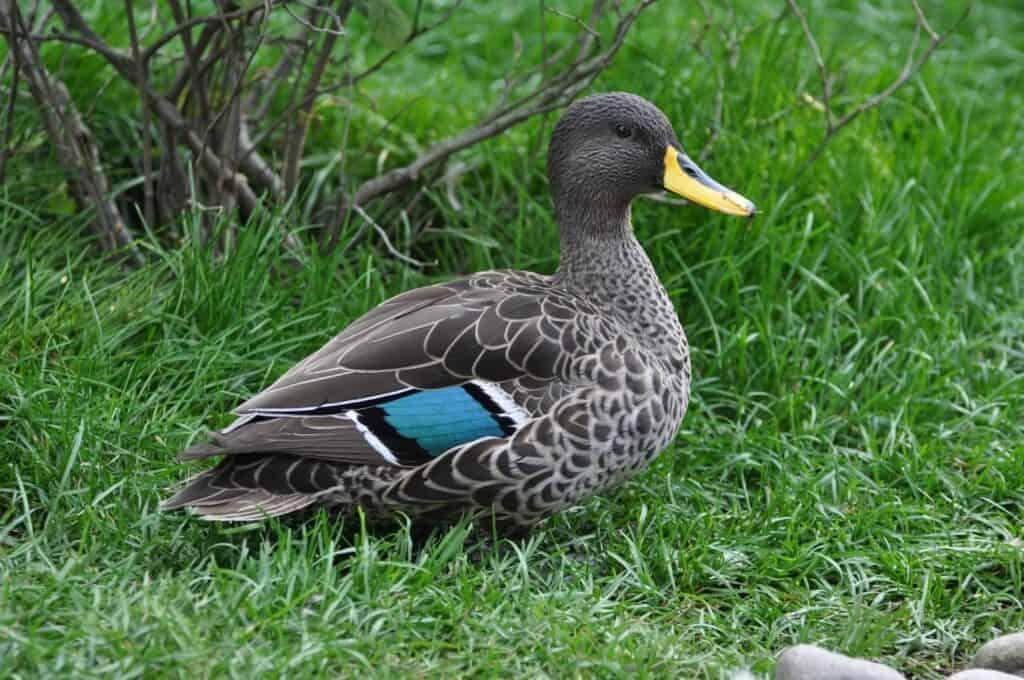
The Yellow-billed Duck resembles the mallard and is commonly found in African wetlands. Its bright yellow bill makes it easy to identify.
-
Region of Habitat: Sub-Saharan Africa
-
Scientific Name:Anas undulata
-
Feeding Habits: Aquatic plants, insects, and small crustaceans
-
What Sound They Make: A soft quacking, similar to a subdued mallard
Fun Facts
Unlike many ducks, Yellow-billed Ducks are non-migratory. They are often seen in pairs or small groups near lakes and rivers.
4. Yellow-billed Magpie
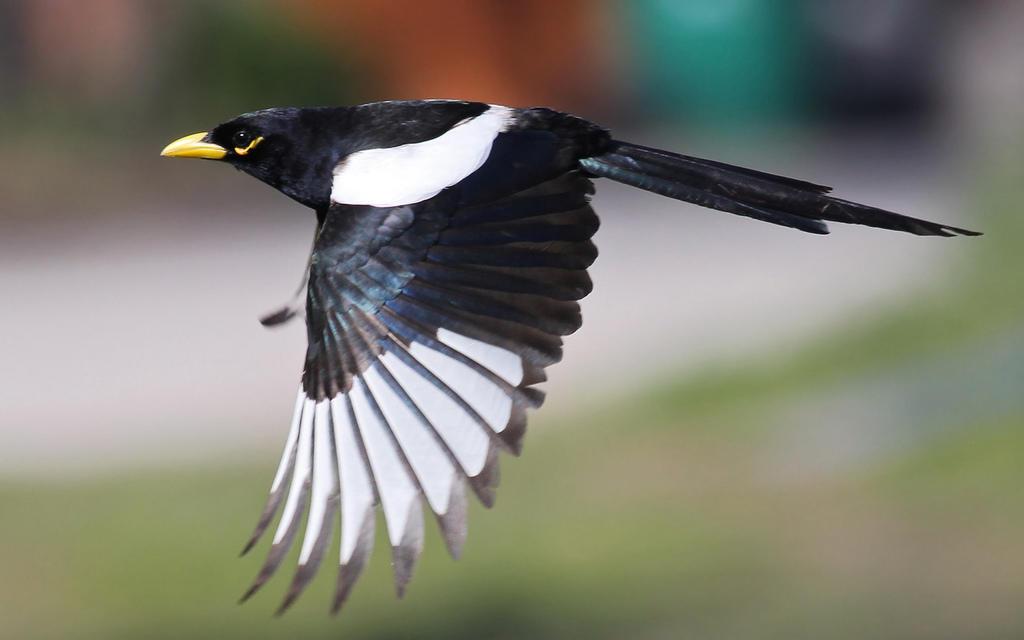
A bold and highly social bird, the Yellow-billed Magpie is known for its bright yellow bill and long tail. It is found only in a specific part of the world.
-
Region of Habitat: Central California, USA
-
Scientific Name:Pica nuttalli
-
Feeding Habits: Insects, fruits, seeds, and small animals
-
What Sound They Make: Harsh “kwek” calls and chatter
Fun Facts
Yellow-billed Magpies are one of the few birds found only in California. They are susceptible to habitat changes and diseases like West Nile Virus.
5. Yellow-billed Cuckooshrike
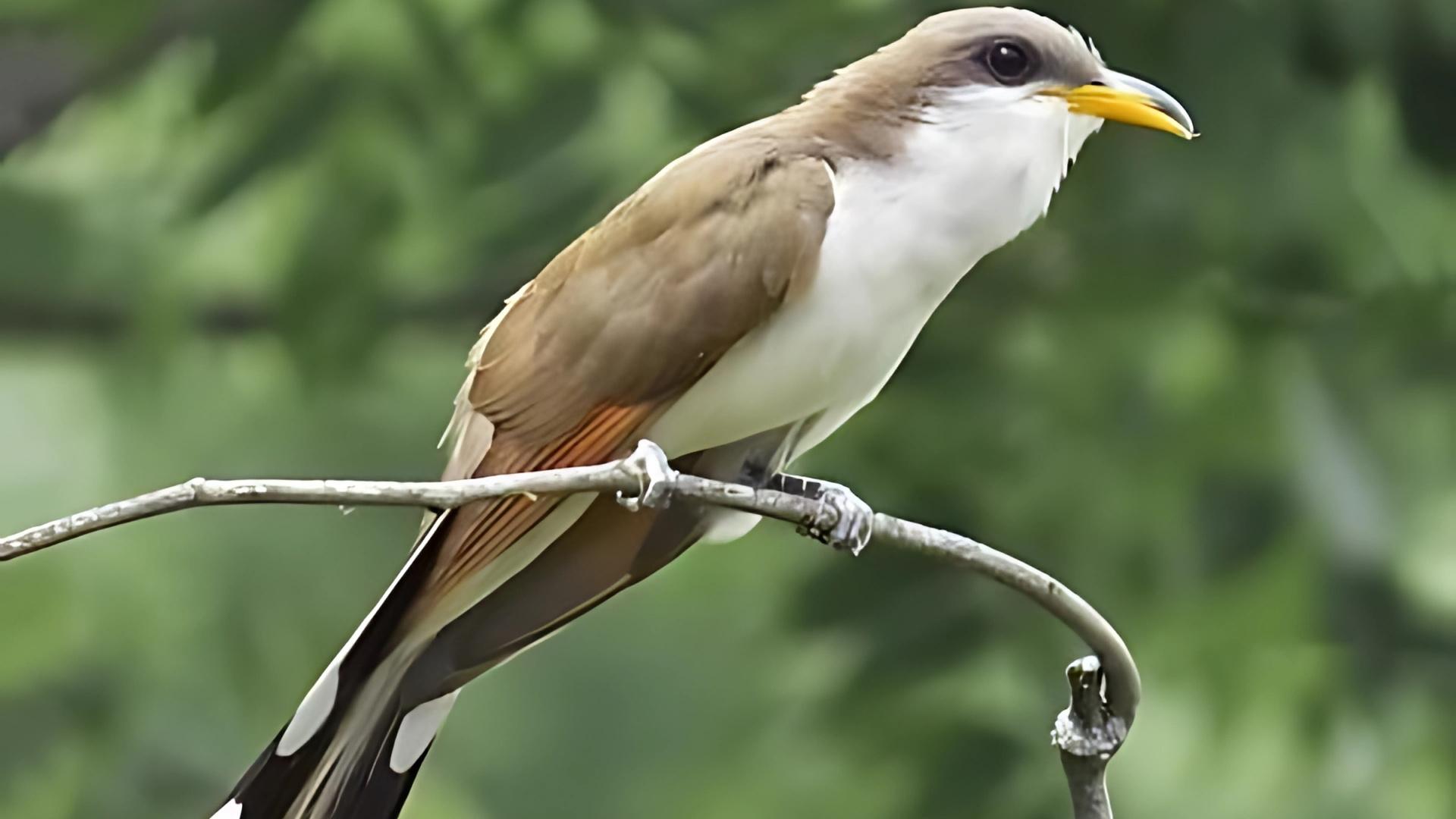
Medium-sized and slender, this bird has a curved bill and soft grey plumage with a yellow lower mandible. It’s often found in tropical canopies.
-
Region of Habitat: South and Southeast Asia
-
Scientific Name:Coracina lineata
-
Feeding Habits: Insects, caterpillars, and fruits
-
What Sound They Make: Repetitive whistles and chirps
Fun Facts
Though named a cuckooshrike, it is unrelated to true cuckoos or shrikes. It often moves in mixed-species flocks in forested habitats.
6. Yellow-browed Warbler
A tiny leaf warbler with greenish upperparts and yellowish underparts, this species is a frequent traveler between Asia and Europe.
-
Region of Habitat: Siberia (breeding), South and Southeast Asia (wintering)
-
Scientific Name:Phylloscopus inornatus
-
Feeding Habits: Small insects and spiders
-
What Sound They Make: A high-pitched “tsoo-eet” call
Fun Facts
Yellow-browed Warblers are long-distance migrants despite their small size. They are among the most frequently seen birds in Western Europe.
7. Yellow-breasted Chat
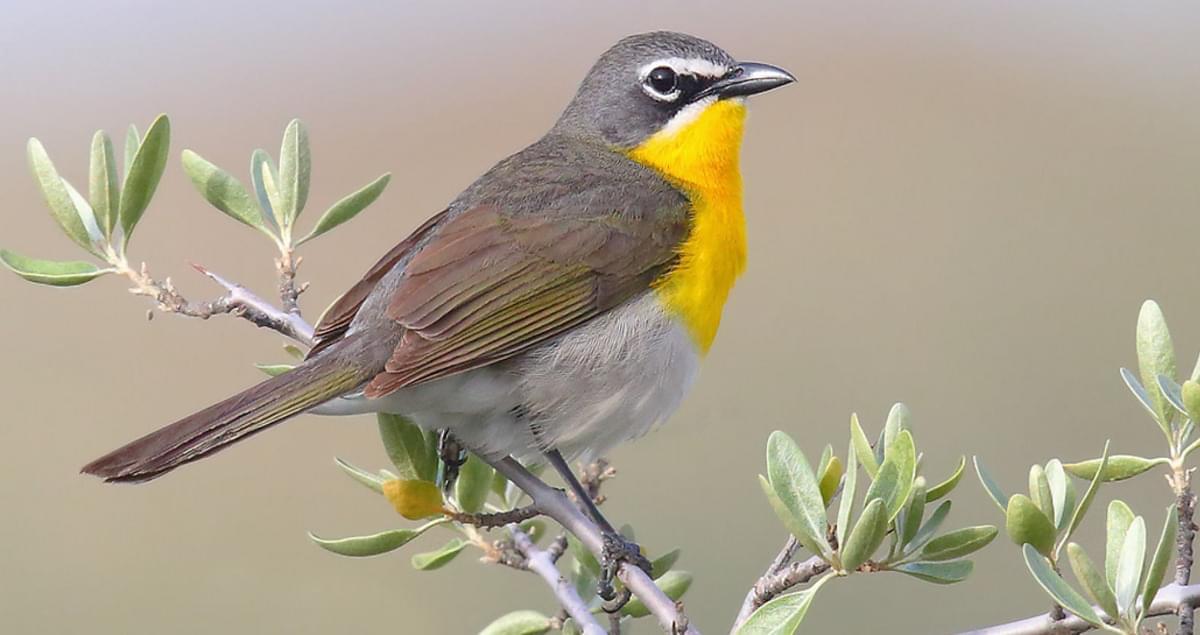
Larger than most warblers, this bird is known for its bold yellow chest and loud, varied calls. It prefers dense brushy areas.
-
Region of Habitat: North America
-
Scientific Name:Icteria virens
-
Feeding Habits: Insects, berries, and seeds
-
What Sound They Make: A mix of whistles, cackles, and grunts
Fun Facts
The Yellow-breasted Chat was once debated whether it was a warbler or not due to its size. It’s now in its own unique bird family.
8. Yellow-billed Cardinal
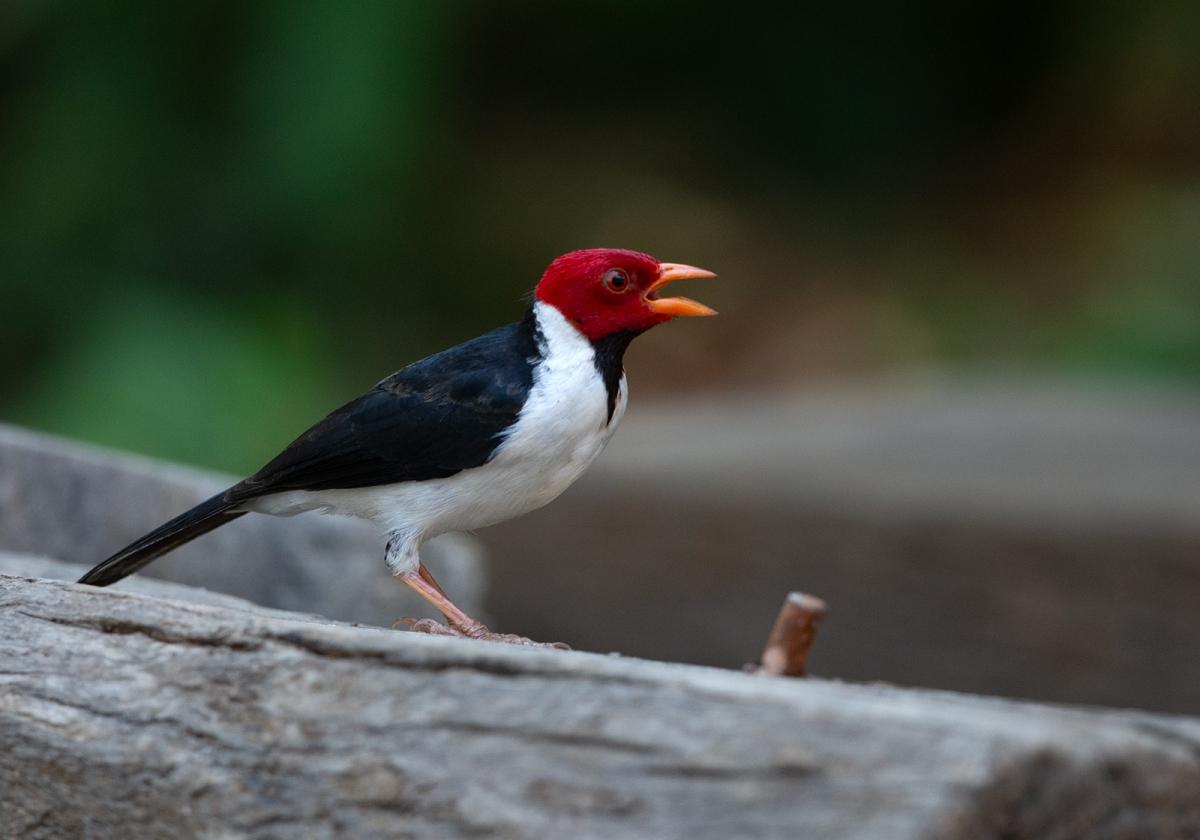
This striking bird has a red head, black back, and a bright yellow bill. It’s easily spotted in tropical and subtropical habitats.
-
Region of Habitat: South America; introduced in Hawaii
-
Scientific Name:Paroaria capitata
-
Feeding Habits: Seeds, fruits, and insects
-
What Sound They Make: High-pitched, sharp chirps
Fun Facts
Though called a cardinal, it isn’t part of the true cardinal family. In Hawaii, they are commonly seen in urban parks and gardens.
9. Yellow-bellied Seedeater
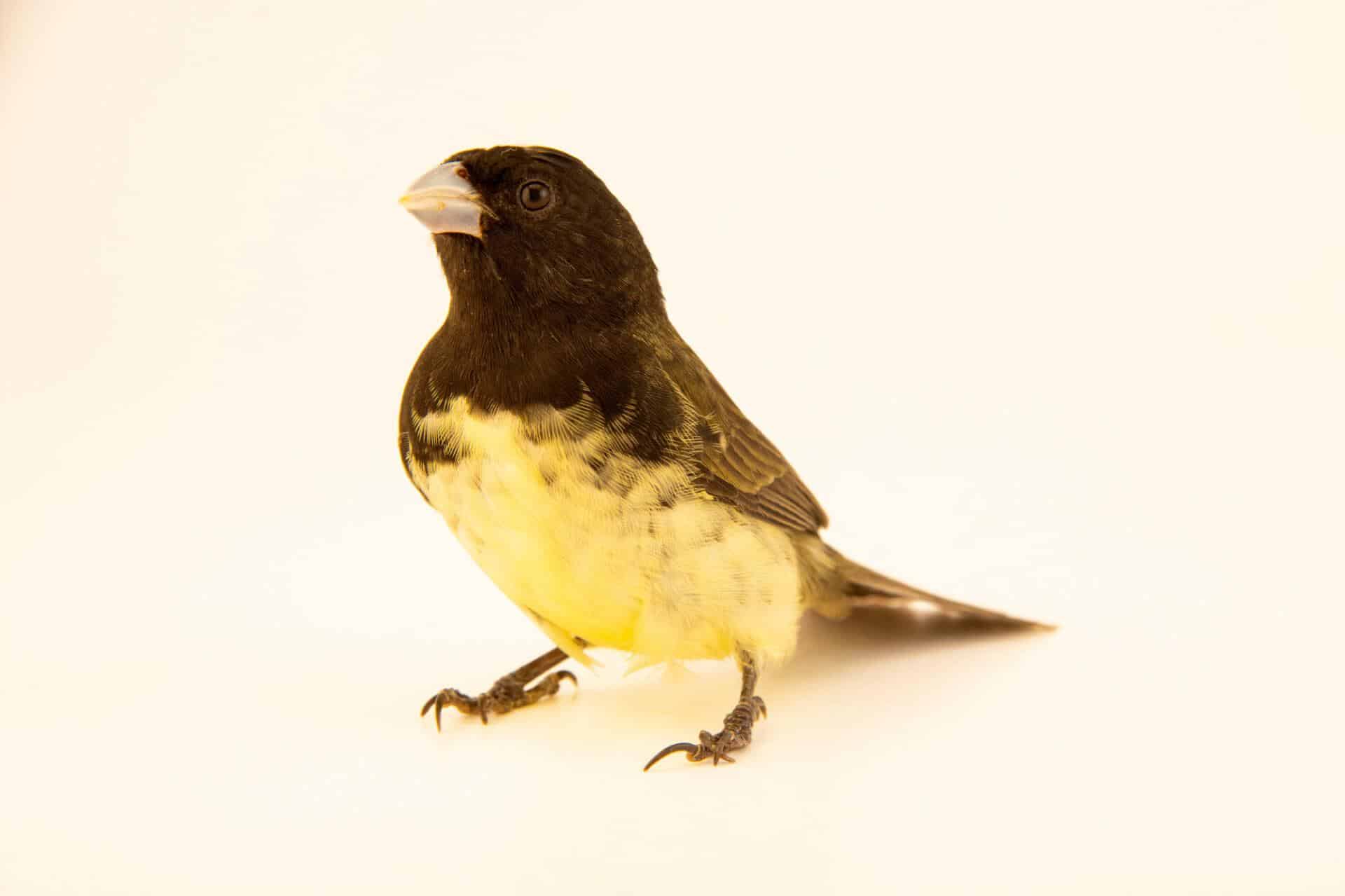
This small finch-like bird has a yellow belly and a black head (in males). It’s often seen hopping on the ground or perched on grass stalks.
-
Region of Habitat: Central and South America
-
Scientific Name:Sporophila nigricollis
-
Feeding Habits: Grass seeds and small insects
-
What Sound They Make: Thin, high trills and chips
Fun Facts
The Yellow-bellied Seedeater adapts well to human-modified environments. It is a frequent visitor to pastures and farmland edges.
10. Yellow-browed Bulbul
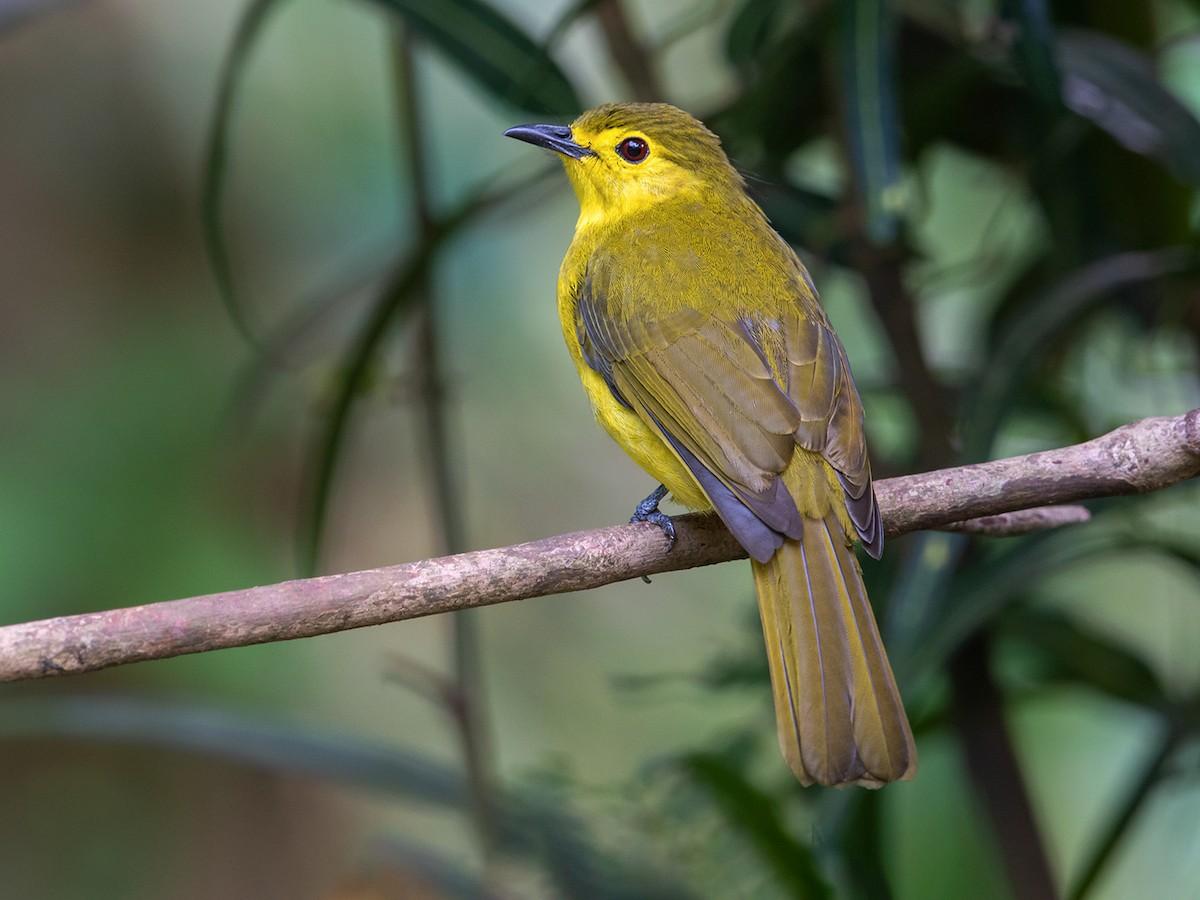
Bright and cheerful, this bulbul is known for its lemon-yellow underparts and olive-green back. It’s often heard before it’s seen.
-
Region of Habitat: Western Ghats and Sri Lanka
-
Scientific Name:Acritillas indica
-
Feeding Habits: Fruits, nectar, and insects
-
What Sound They Make: Musical whistles and twitters
Fun Facts
Due to their fruit-heavy diet, Yellow-browed Bulbuls play a role in seed dispersal. They are often spotted in pairs or small groups in forested areas.
Some More Birds With The Letter “Y”
11. Yellow-bellied Elaenia
12. Yellow-bellied Fantail
13. Yellow-bellied Greenbul
14. Yellow-bellied Prinia
15. Yellow-bellied Tanager
16. Yellow-bellied Tit
17. Yellow-billed Babbler
18. Yellow-billed Barbet
19. Yellow-billed Blue Magpie
20. Yellow-billed Chough
21. Yellow-billed Jacamar
22. Yellow-billed Kingfisher
23. Yellow-billed Loon
24. Yellow-billed Malkoha
25. Yellow-billed Nuthatch
26. Yellow-billed Oxpecker
27. Yellow-billed Parrot
28. Yellow-billed Pintail
29. Yellow-billed Shrike
30. Yellow-billed Teal
31. Yellow-billed Tern
32. Yellow-billed Tit
33. Yellow-breasted Boubou
34. Yellow-breasted Boatbill
35. Yellow-breasted Bunting
36. Yellow-breasted Crake
37. Yellow-breasted Fruit Dove
38. Yellow-breasted Greenfinch
39. Yellow-breasted Pipit
40. Yellow-breasted Waxbill
41. Yellow-browed Sparrow
42. Yellow-browed Tody-Flycatcher
43. Yellow-capped Pygmy Parrot
44. Yellow-chevroned Parakeet
45. Yellow-collared Lovebird
46. Yellow-collared Macaw
47. Yellow-crested Cockatoo
48. Yellow-crested Tanager
49. Yellow-crowned Bishop
50. Yellow-crowned Canary
51. Yelkouan Shearwater
52. Yellow Bishop
53. Yellow Bittern
Flying to The End
These amazing birds show how special nature can be! From tiny Yellow Warblers to the unique Yellow-capped Pygmy Parrot, birds with “Y” in their names come in all shapes and sizes.
These special birds can be found in many different places.
Some might visit backyards, while others live in forests or near water. Looking up at the sky or into trees might reveal one of these “Y” birds!
Learning about birds helps everyone understand how important they are to our world. They help plants grow by spreading seeds and keeping bug populations under control.
If you’re interested in more informative birds or animal and wildlife content, feel free to click here and explore other blogs that you might enjoy!

